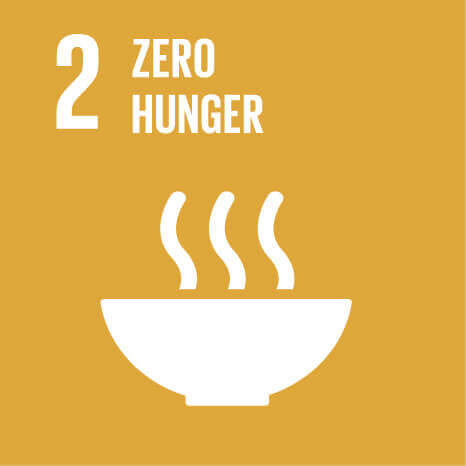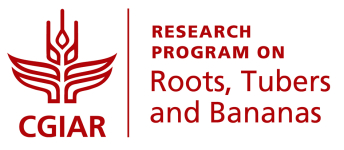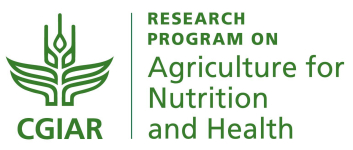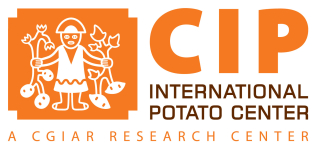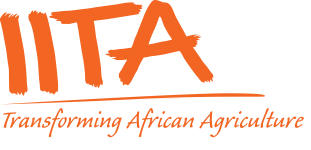Successful scaling up of biofortified crops to fight against hidden hunger in Nigeria, Tanzania and surrounding region through strong advocacy efforts and supportive policy environment
Published on: April 29, 2019, Submitted by Diego Paredes on: April 6, 2019, Reporting year: 2018
A multi-stakeholder partnership led by CIP contributed in making biofortification a priority in 11 national and regional policy and strategy documents and mobilized about $6.5M in Nigeria and Tanzania. It has influenced seven programmes and built capacities of 40+ agencies. Four learning toolkits developed, which trained 11,433 (5,976 female) change agents, who can lead gender-sensitive projects with a nutritious food-basket approach. 7 biofortified crop varieties have been fast tracked. Almost 1M households are growing biofortified crops in Tanzania and Nigeria
Project banner
STORY FOR COMMUNICATION USE
Advocacy significantly influenced policy change and generated new investments from governments, development partners, and the private sector to scale up utilization of biofortified crops, including orange fleshed sweetpotato and yellow cassava, in Nigeria, Tanzania and at the regional level. The CIP-led multi-stakeholder partnership including CIAT, CIMMYT, IITA, HarvestPlus, FARA and the Governments of Tanzania and Nigeria developed the capacity of 101 advocates (27 regional, 42 in Tanzania, and 32 in Nigeria) from diverse backgrounds and institutions (men, women and youth) to support regional, national and local advocacy efforts for biofortification and equipped them with technical and advocacy skills. BNFB developed branded promotional materials of diverse nature and content that were used to support advocacy. Other tools included an investment guide, an implementation guide and communication material for advocates and champions. Promotion and sensitization events, and high-level advocacy engagements have had a direct impact on increased policy action regionally for food production and nutrition, increased access and intake of biofortified foods that are rich in vitamin A and iron, and increased food and nutrition security at the household level. The initiative has developed effective partnerships with multiple organizations and across different sectors within the public and private sector arenas as well as with civil society organizations to compliment ongoing projects, add value and fill critical gaps. It has participated in several strategic regional and national events to advocate for prioritization and inclusion of biofortification in regional policy documents, strategies and plans and the scaling up of biofortified crops. This has contributed to embedding biofortification in 11 policies, strategies and plans and helped to accelerate the scaling of biofortified crops within the wider agricultural and nutrition/health/education sectors.
Policy document examples:
Nigeria: The Nigerian Food and Nutrition Policy (2016–2020), the Agricultural Sector Food Security and Nutrition Strategy (2016–2025) as well as State Government plans (i.e. Oyo, Rivers and Kano) have included biofortification in their priorities.
Tanzania: The National Multi-Sectoral Nutrition Action Plan for Prevention of Micronutrient Deficiencies (NMNAP), considers the experience of the CGIAR on scaling biofortified crops
Regional: The African Development Bank Multi-sectoral Nutrition Action Plan 2018-2025 mentions biofortification among the strategies to mainstream nutrition into their portfolio
ELABORATION OF IMPACT STATEMENT
A multi-stakeholder partnership led by CIP has successfully contributed in catalyzing sustainable investments in the utilization of biofortified staple crops at scale in Nigeria, Tanzania and the surrounding region to reduce hidden hunger. This is valuable as rural communities have limited access to commercially processed and fortified foods, and biofortification may have a wider and more significant reach by increasing nutrient density through conventional breeding, agronomic practices and biotechnology. To date, a total of US$6,543,230 has been mobilized to support programs on biofortification – mainly from external governments or development agencies (27%); NGO/foundations (15%); the private sector (23%); Governments (5%); and investment raised by HarvestPlus (31%). The governments of Tanzania and Nigeria have invested in biofortification, through staff salaries, research activities, land, and other fixed costs to support implementation. An additional US$12,946,180 is in the pipeline.
The use of advocacy for policy engagement was effective as it enabled the incorporation of biofortified crops as a food-based intervention to address micronutrient deficiency within national and regional polices, programmes and investment plans. The initiative has leveraged other on-going projects on biofortified crops which have been working on advocacy, policy development, nutrition education, and behavior change communication for demand creation, capacity strengthening, and institutional learning to support the scaling up of multiple biofortified crops. The capacity of two national multisectoral policy platforms – under the Ministry of Budget and National Planning in Nigeria and the Prime Minister’s Office in Tanzania have been strengthened. These platforms will continue to bring together key actors in agriculture, nutrition, health, education, finance and planning to influence policy and advocate for increased investment in biofortification.
A range of advocacy and communications materials, including a document folder, factsheets, flyers, leaflets, pull-up banners, infographics videos, posters, success stories in English and Kiswahili, radio programs have been developed and shared for wider access. More than 15,000 copies of print materials have been disseminated as well as videos, blogs with a backlink to partner websites. BNFB has also been active on various social media platforms including Twitter, Facebook, Instagram and AgTube.
Stage of Maturity and Sphere of influence
-
Stage of Maturity: Stage 2
-
Contributions in sphere of influence:
Acknowledgement
-
Projects
-
Building Nutritious Food Baskets: Scaling up Biofortified Crops for Nutrition Security in Nigeria and Tanzania (RAC phase 2)



